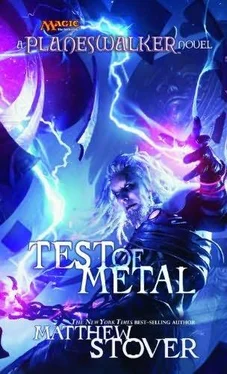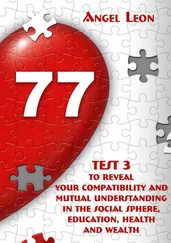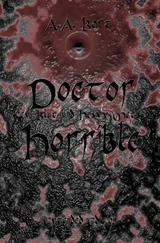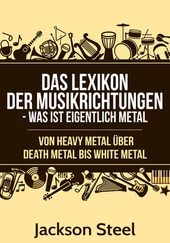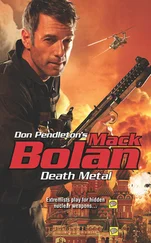Mathew Stover - Test of Metal
Здесь есть возможность читать онлайн «Mathew Stover - Test of Metal» весь текст электронной книги совершенно бесплатно (целиком полную версию без сокращений). В некоторых случаях можно слушать аудио, скачать через торрент в формате fb2 и присутствует краткое содержание. Жанр: Фэнтези, на английском языке. Описание произведения, (предисловие) а так же отзывы посетителей доступны на портале библиотеки ЛибКат.
- Название:Test of Metal
- Автор:
- Жанр:
- Год:неизвестен
- ISBN:нет данных
- Рейтинг книги:5 / 5. Голосов: 1
-
Избранное:Добавить в избранное
- Отзывы:
-
Ваша оценка:
- 100
- 1
- 2
- 3
- 4
- 5
Test of Metal: краткое содержание, описание и аннотация
Предлагаем к чтению аннотацию, описание, краткое содержание или предисловие (зависит от того, что написал сам автор книги «Test of Metal»). Если вы не нашли необходимую информацию о книге — напишите в комментариях, мы постараемся отыскать её.
Test of Metal — читать онлайн бесплатно полную книгу (весь текст) целиком
Ниже представлен текст книги, разбитый по страницам. Система сохранения места последней прочитанной страницы, позволяет с удобством читать онлайн бесплатно книгу «Test of Metal», без необходимости каждый раз заново искать на чём Вы остановились. Поставьте закладку, и сможете в любой момент перейти на страницу, на которой закончили чтение.
Интервал:
Закладка:
My father gathered three or four potato sacks, told me to bring the sheets off his bed, and we went to get my mother.
My father and I did not speak on the long trudge upslope from Tidehollow to Lower Vectis. We didn’t speak while we threaded through the murky lanes and alleys. The sum total of our conversation took place beside my mother’s broken corpse, just before we dug her body out of the greasy muck in the middle of the lane.
“Even this,” my father had said softly, in a bitterly sullen murmur as though reminding himself how angry he should be. “Even this, theyz tooken from me.”
When I asked whom he meant, he sullenly nodded upslope. “Bankers ‘n’ merchants. Guildsfolk. Them as lives up the city.”
I could not imagine why anyone rich enough to live upslope would want anything of ours, and I said so.
“Futter want. They don’ has to want for them to take. Take is what they do. Take is their whole life. Us downslopers myz well be butt rags. One swipe ‘crost some arsehole and down the shitter.”
When I told him I felt this wasn’t right, he cuffed me on the side of the head hard enough to send me staggering. “Right, nothin’,” he said. “Ain’ right I whap ye on the ear, but I do. Cuz I can. Cuz ye ain’ big enow to stop me.”
I didn’t care about the smack; his heart hadn’t been in it, and so I’d barely noticed. I cared only for discovering who might be big enough to stop them. When I asked, my father only shook his head.
“Nobody,” he said. “They owns the whole world, boy.”
Even at seven, my political instincts were already developing; I pointed out that somebody had to be in charge, or nothing would ever get done.
“Dunno ’bout bein’ in charge. Only folks as scares guildsfolk ’ud be mages. When them mages talk, best believe them guildsbuggers chew their tongues ’cept for yessir.”
“Mages?” I’m fairly certain that this was the first time in my life I’d heard that word. It’s certainly the first I remember. “What’s mages?”
“Sumpin as ye need not know, boy. You’ll never see one.”
This was the longest conversation my father and I ever had.
So this was my lesson: The strong-the wealthy, the powerful, the influential-take. The weak are taken from. The strong do to the weak whatever the weak can’t stop them from doing. The strong could run my mother down in the street without even thinking about it.
This did not strike me as injustice. I’m from Tidehollow; I didn’t know what injustice meant until years later, when I came across the word in the course of my self-education. The concepts of justice and injustice struck me at that time as inherently suspect, and nothing in my life has since moved me to alter that opinion. To complain of injustice seems as useful as complaining that the sun shines or that the winds blow.
No: the casual destruction of my mother’s life struck me instead as a reason to make myself strong. She was taken from me because I could not stop them from taking her. I understood that if I remained as I was-a scrapper’s boy in Tidehollow-anything in my life could be taken from me… and everything that could be taken would be taken.
The most reasonable solution, to my young mind, was to make of myself a stronger man. But even if I did, I could be robbed by folk stronger still. How could I stop them?
The answer seemed obvious. The experience that had earned me my nickname left me with an enduring appreciation for the power of precisely applied violence. By the second or third time some other people’s mothers were found dead in the street-the mothers of, say, individuals who had attempted to take from me-I was confident that the warning would be generally understood.
The power to revenge injury a thousandfold was my fondest boyhood dream. No one would dare take what is mine. Ever.
And the word my father taught me that evening, the word meaning “the strongest,” was mage.
I undertook my own investigation into the nature of mages, and how one achieves that title. To ask anyone in Tidehollow would have been futile; I would have gotten more useful answers from my reflection in a mud puddle.
Over the course of some weeks, my investigation took me on surreptitious scouting expeditions into Upper Vectis. There, I discovered for the first time what the slivers and oddments of pale metal that my father gathered were actually used for. I came to understand why a week’s food could be purchased with an amount of etherium that might barely equal the weight of my fingernail parings.
I learned that an individual’s wealth could be calculated to a nicety by observing how much etherium that individual exhibited in jewelry, articles of clothing, slaves, and vehicles. The wealthiest had etherium magically melded to their flesh, and mages-whether human or vedalken or even the great sphinxes of the distant islands-shared one distinguishing feature: a limb, or a body part or several, wholly replaced by a structure of etherium, enchanted to duplicate (and often exceed) the function of the part it replaced.
I also learned I could work as a scrapper for my entire life and never save enough to buy so much as an etherium nose ring.
I was very taken with the esthetics of the etherium enhancements, as well. The indestructible metal for structure and magic for muscles and nerves, clean lines and curves, and elegant purity of operation made them irresistible. Having spent some hours on that street in Lower Vectis, gathering up the filthy shreds of meat and bone that had been my mother, I was-I am-entirely too familiar with the muck restrained by human skin.
I know the color of raw human liver. I know the texture of ripped-open human lung. I saw gobbets of my mother’s brain, and the undigested remnants of a breakfast we had shared in a stew of blood and bile within her torn stomach. And I knew even then that the organs I helped my father scoop back into my mother’s abdominal cavity were no different than what lurked in my own guts, and that the foul stench of corruption lived inside me, too. To this day, I see and smell them again, fully as vivid as they were to my seven-year-old self, in the nightmares that overtake me when I must sleep.
Someone more interested in human psychology than I am might find something ironic in this; I do not think in such literary terms. I am what I am. The key to successful artificing has nothing to do with why; what is the relevant issue. Combined with a properly structured how, one can unlock the universe.
Relevant facts change as circumstances develop, but still…
I’ve known what I am since the night my mother died. I knew what I intended to make of myself, and how to achieve it.
The next day, I entered the family business at my father’s side. I undertook to learn every detail of how one finds and gathers cast-off shreds of etherium. The activity is surprisingly technical, requiring considerable expertise, as the value of the metal makes it very much sought after. One must learn to search where others won’t and learn to retrieve where others can’t.
I very shortly discovered that I surpassed my father in this work, though he’d been a scrapper since he was my age. For a time, I arrogantly assumed it was due to some innate superiority of intellect or character; there were untapped caches of a gram or less of etherium in any number of places, and I assumed my success in finding them-where my father could not-meant I was smarter than he was. I discovered I was wrong when my father decided he no longer needed to work at all, beyond assessing what I had found, calculating a price, and trekking upslope to Vectis to sell it.
He knew as well as I did that I was a better scrapper than he was, and-unlike my ignorant self-he knew why. I chance to have a talent that the vedalken call rhabdomancy. In plain terms, when I have a sample of a particular material, I have a sort of intuition that leads me to wherever I can find more. As rhabdomants go, I was not-nor am I now-especially gifted. My talent enabled me to find etherium because it’s an intense substance, one that casts a vivid shadow upon reality.
Читать дальшеИнтервал:
Закладка:
Похожие книги на «Test of Metal»
Представляем Вашему вниманию похожие книги на «Test of Metal» списком для выбора. Мы отобрали схожую по названию и смыслу литературу в надежде предоставить читателям больше вариантов отыскать новые, интересные, ещё непрочитанные произведения.
Обсуждение, отзывы о книге «Test of Metal» и просто собственные мнения читателей. Оставьте ваши комментарии, напишите, что Вы думаете о произведении, его смысле или главных героях. Укажите что конкретно понравилось, а что нет, и почему Вы так считаете.
